Agrivoltaics
As a pioneer in renewable energies and with its strong local roots, the VALOREM Group aims to contribute to the agro-ecological transition of local areas by supporting agrivoltaic projects.
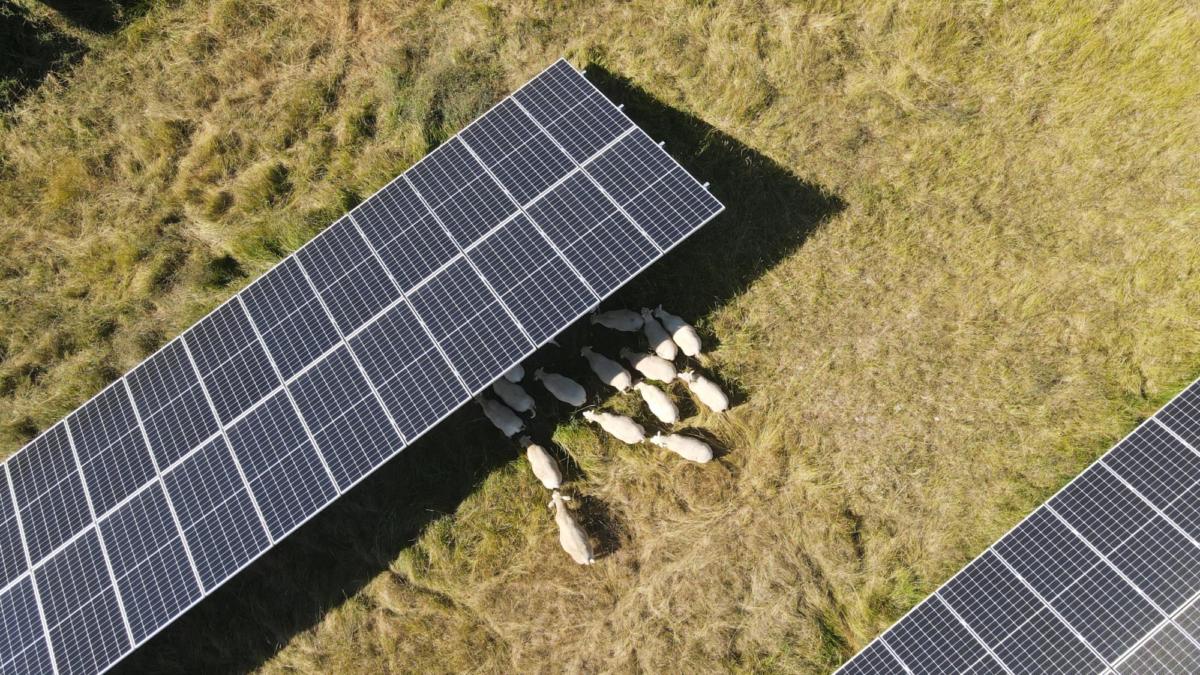
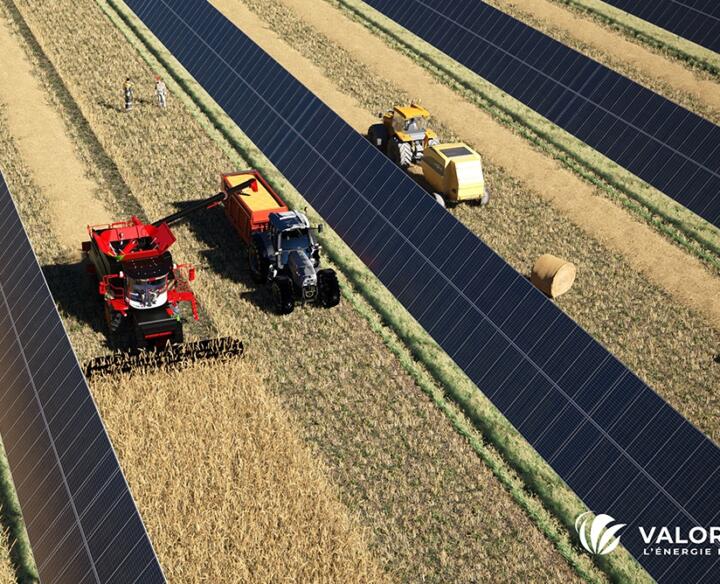
By 2030, the French government has set an objective of increasing its production of renewable electricity to 40%, in order to address the challenges raised by the energy transition law for green growth adopted in 2015.
The Multiannual Energy Programme forecasts that around 40 GW of solar power will be installed by 2028, as opposed to 19 GW today. In addition, the scarcity of land and derelict sites is driving the solar industry to be innovative to find new sites.
At the same time, agriculture is facing an unprecedented crisis:
- Large-scale artificialisation of farmland: 35,000 ha/year since 2010
- Massive retirements: 40% of farmers by 2030, representing ¼ of French farmland
- Agricultural production increasingly threatened by climate hazards: by 2050, in some areas, the IPCC predicts a 60% increase in very hot spells and a disruption in rainfall patterns
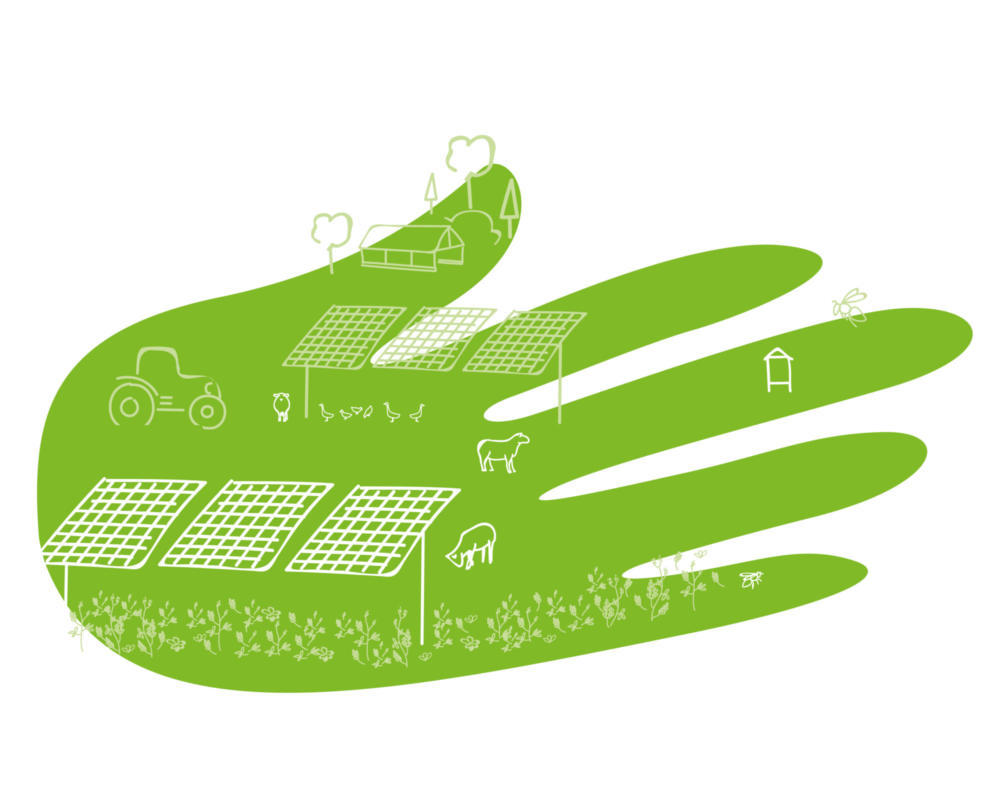
Combining agriculture and renewable energy
In order to participate in the agro-ecological transition and meet the challenges of tomorrow, the VALOREM Group offers agrivoltaic solutions, which combine agriculture and the production of green electricity on the same surface.
The Group’s projects always give priority to agricultural activity. The layout, spacing and height of the panels are defined according to the needs of the farmers. Agrivoltaics projects are also adapted to different types of crops:
- Inter-row crops: market garden, field crops
- Growing crops under mobile panels: arboriculture, berries, etc.
- Reclaiming wasteland to help new farmers set up in business
- Livestock: sheep, cattle, pigs, goats, poultry, etc.
The advantages of agrivoltaics
The development of an agrivoltaic project is a real lever for securing agricultural production, because it offers a number of advantages.
Business resilience for farmers:
- Crop diversification and income security
- Protection against the vagaries of the weather
- Greater independence from the CAP
- Reduced irrigation and excess sunlight thanks to shading
Reduced environmental impact:
- Relocation of agricultural production
- More environmentally-friendly production method
Local food self-sufficiency:
- Strengthening local production and distribution of fruit and vegetables
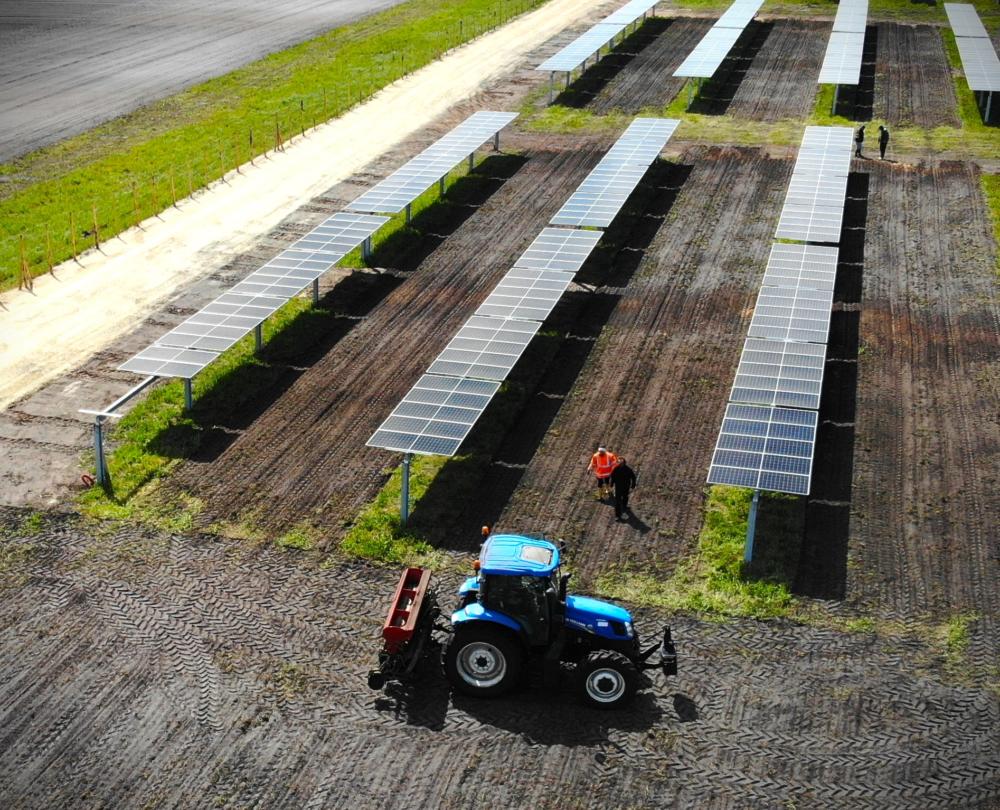
An agrivoltaic demonstrator
DEM&TER is an applied research programme based around an agrivoltaic demonstrator. It aims to test different crops under solar panels in order to identify those with the best agronomic performance.
After 2 years of technical and agronomic studies, the DEM&TER demonstrator was commissioned in 2024. For at least 3 years, crops (alfalfa, asparagus, raspberries) will be cultivated and monitored by independent agronomic institutes (INRAE and Invenio). The aim is to assess the impact of shading on the crops, but also to validate the working environment – both for the farmer who will be present and for VALEMO, the VALOREM Group’s Operation-Maintenance subsidiary, which will operate the solar farm.
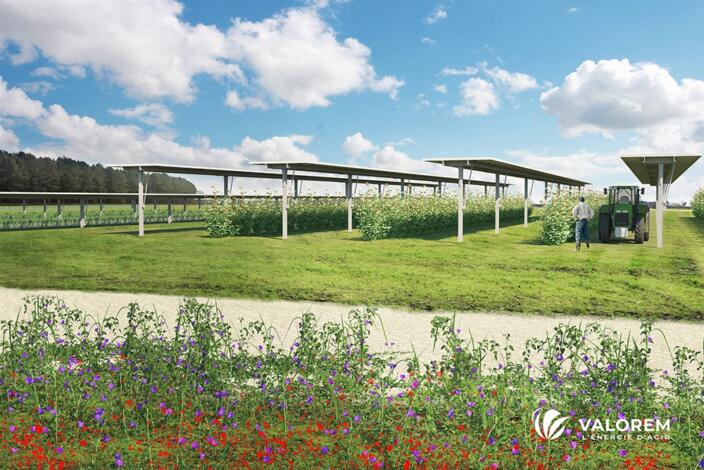
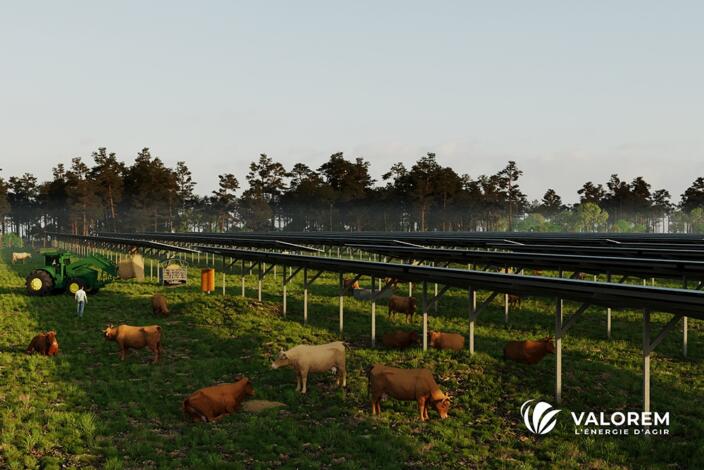
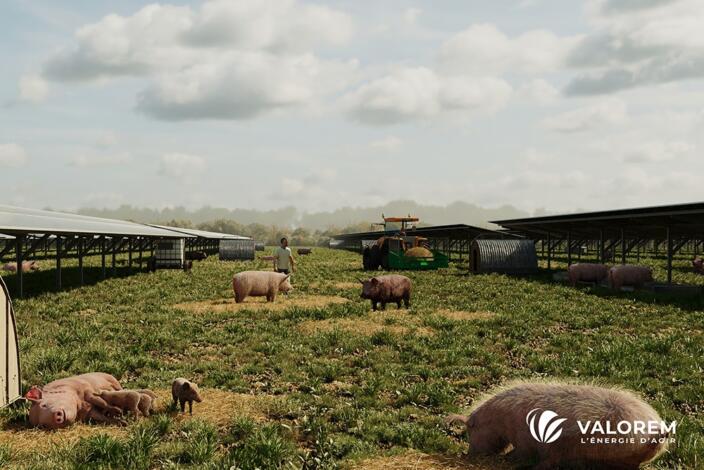
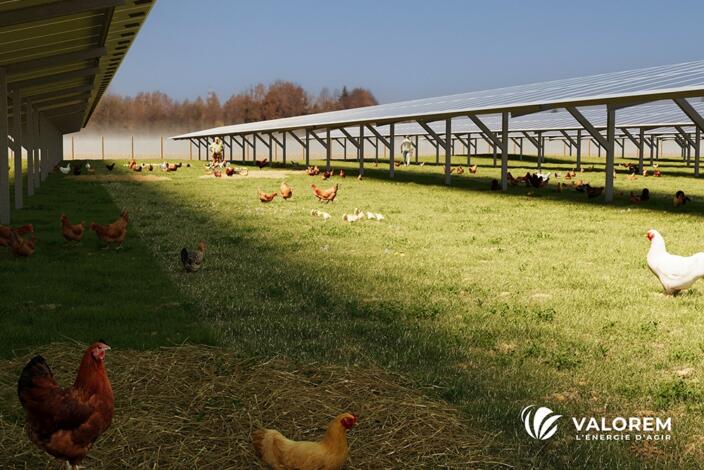
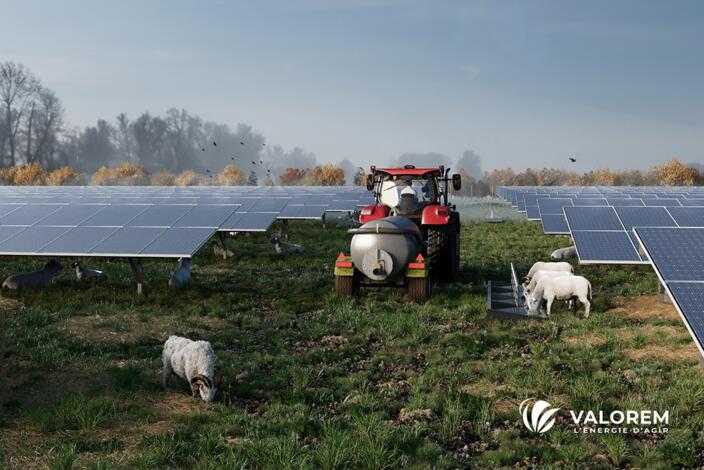
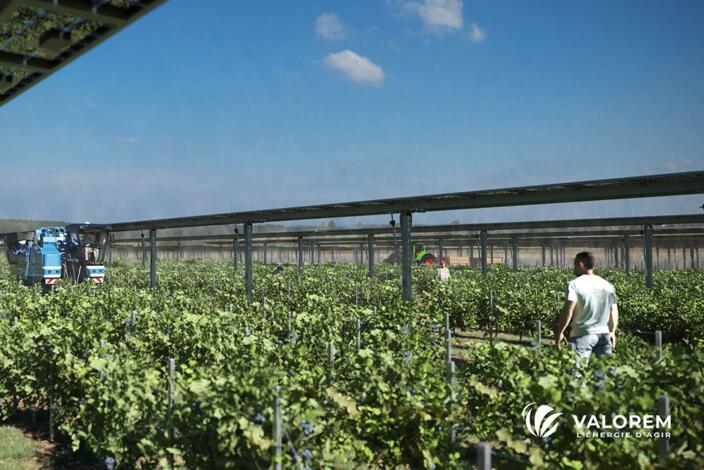
 Solar power
Solar power
 Wind power
Wind power
 Offshore
Offshore
 Hydroelectricity
Hydroelectricity